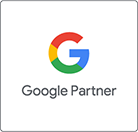The Public Internet
Equal access to digital tools is increasingly a civil rights question as more of our lives are conducted online, including finding work and negotiating necessary services like healthcare. Is it time to make internet access a public utility?
Susan Crawford—author, educator, and advocate—has been making a strong case for transitioning the internet to a public utility. She’s not, however, relying on the civil rights position to get her message across. Instead, Crawford uses history, hard numbers, and the terrifying fact that the US, birthplace of the internet, is lagging behind many other countries in our internet access, our connection speeds, and even our aspirations for connectivity.
In March of 2010, the FCC’s plan stated that every American should have at least 4 Mbps download and 1 Mbps upload speeds by 2020. South Korea’s government, on the other hand, announced its plan for 1 Gbps symmetric fiber to every home (and that plan was for 2012). South Korea may have fallen short with current average speeds of 14.7 Mbps and 94 percent of the country connected, but they’re still ahead of the US (average speeds of 7.7 Mbps with 70 percent of the country connected). The US comes in 9th when it comes to internet speeds.
These are some grim statistics, but would it help anything to make the internet a utility? There are places in the US where the internet has already become a public utility, and it tends to be faster, cheaper, and more reliable than services offered by private telecommunications carriers. According to Bloomberg, Lafayette, LA started offering fiber as a utility in 2007 (after a Louisiana Supreme Court vote that resolved battles with local telephone and cable companies). The telecommunications service savings between 2007 and 2011 were $5.7 million.
The equation is likely far more complicated than the above numbers reflect. Private companies like Google, for example, are creating faster, cheaper networks, and the more philosophical debate about private business and public service is worth having. What’s becoming evident is that this conversation is underway, and anyone whose business relies on the internet (which increasingly means everyone) needs to be paying attention. Internet access means access to education, entertainment, goods and services, and opportunities for individual entrepreneurship. How this plays out will affect how the US is able to compete in the world economy, and I know we can do far better.


.png)
